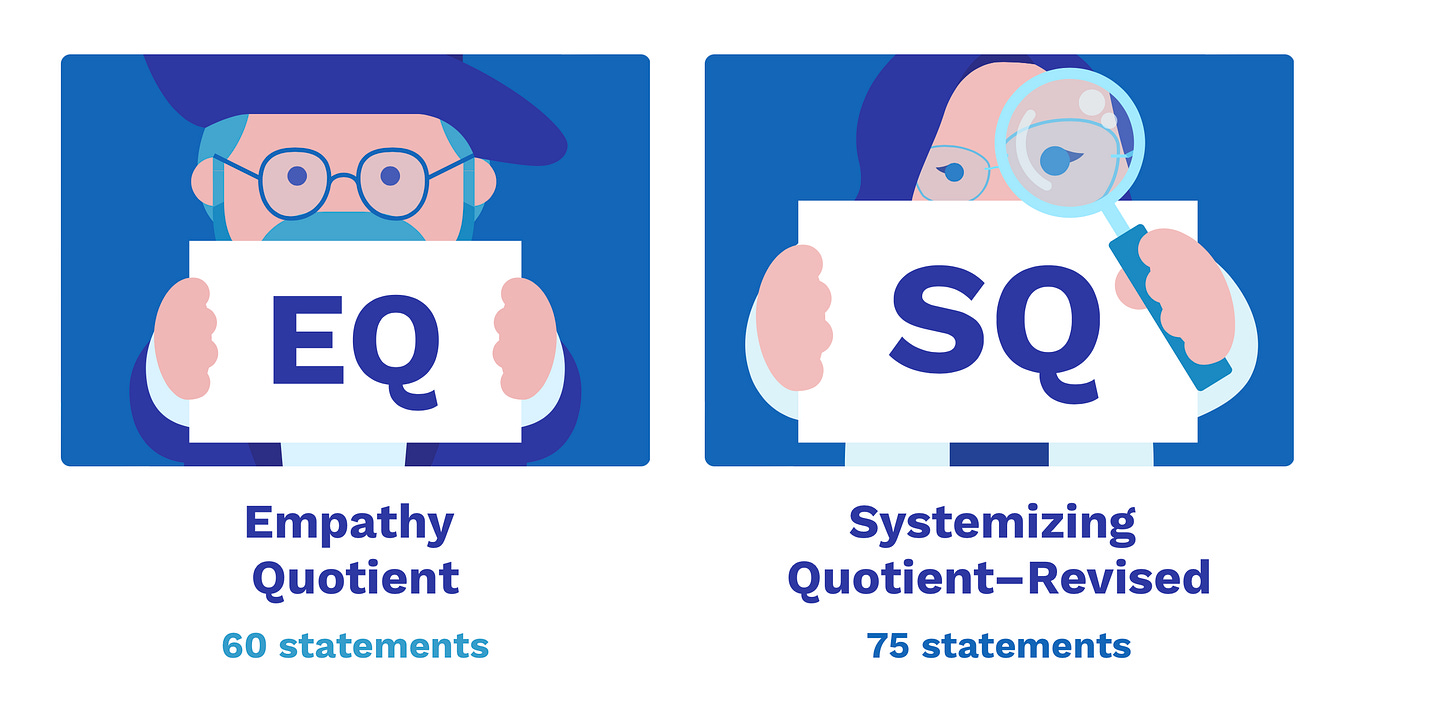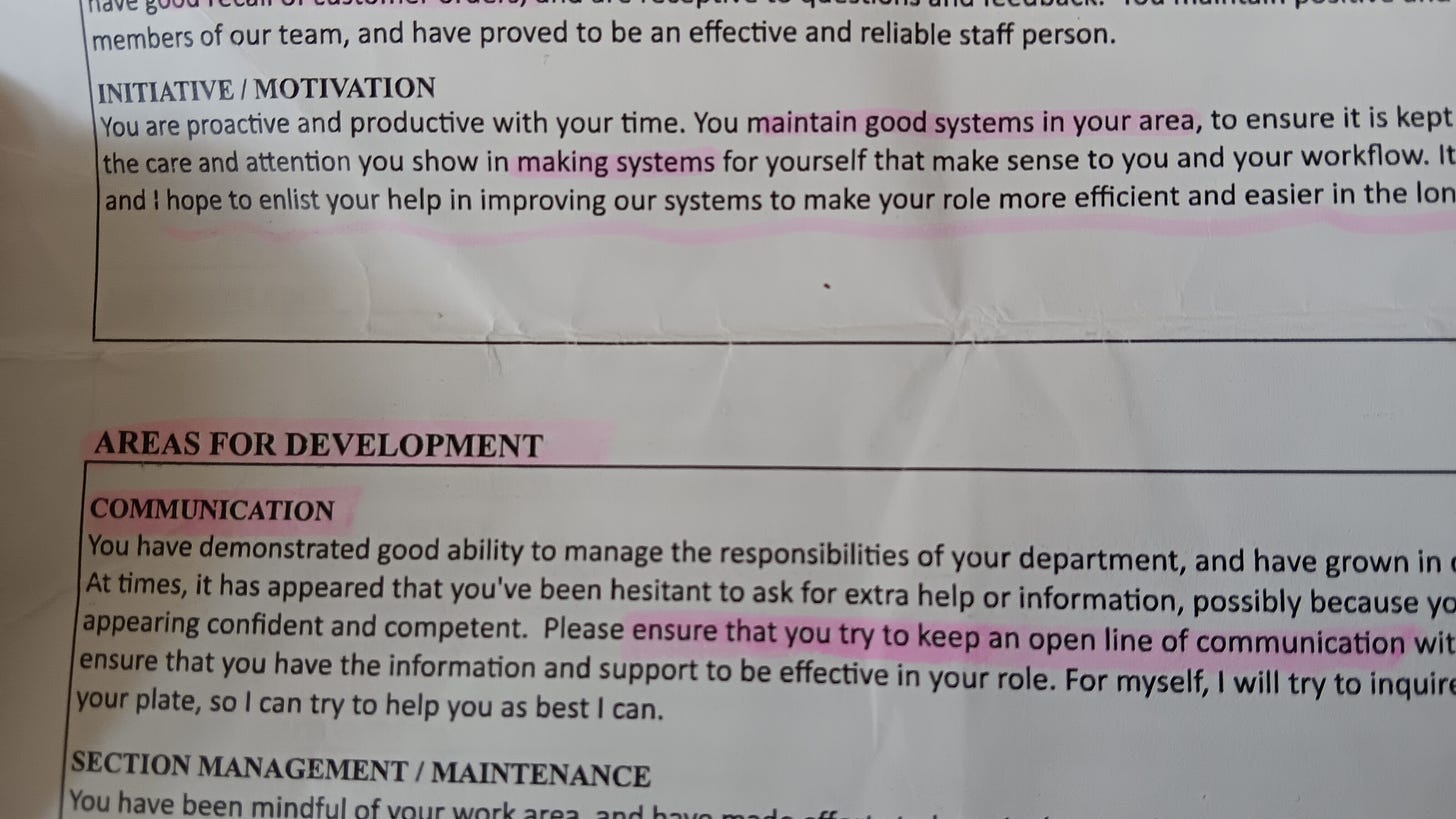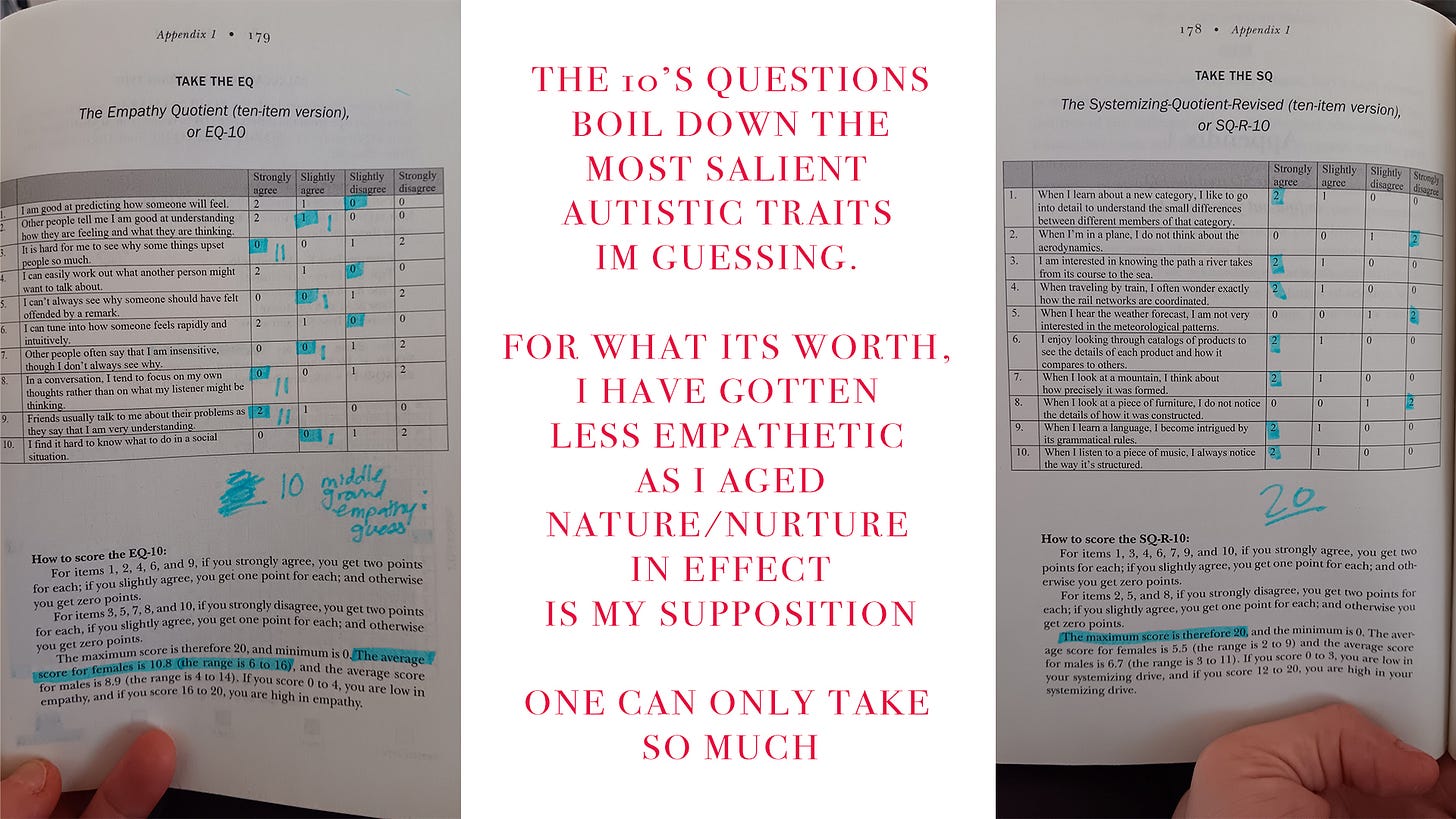Art was the only way I knew how to talk. Literally. For a big chunk of my life people struggled getting me to speak, ‘why don’t you talk’ or redirect me if I was ‘fanatical’ about a topic.
A clip from the collateral interview with my parents. My Dad initially refused to be a part and last minute decided he wanted to be included. Im exceedingly lucky to have had both parents willing participants in this process.
My whole report is full of these little gems. Like, what did they want me to share, exactly? To this day I kind of don’t get it. When I was constantly called stubborn, I had no idea what anyone was talking about. Which is kind of hilarious because it was used as a tool to get through to me. And it never did. My attitude was me—not a selected behaviour to aggravate others on purpose.
A painting in 2010 I created for our local Transit system. It went into the ad spaces on buses, and a fellow student texted me about a man on transit who ripped my art screaming it was cursed. My fellow student posted the remnants of the shredded art for me to see.
My penchant for drawn expression was at an early age. I loved getting lost on the page. My perseverance was seen as a “gift” for details and world building-and pissed me the fuck off. I was so uncomfortable being lauded for (my version of) talking, like it was some magical thing and not a survival tactic I experienced it as.
Being labelled an Artist didn’t fully embody what was going on. I felt the term glossed over the actual work going on in my head to make something. I wasn’t blessed. I worked hard and metaphorically would kill myself over studying, repetitive drawings, reading, analyzing, absorbing everything I could to become better. Autism aside, people don’t realize how much work it takes to be an Artist. It is constant manipulation and integration of information, application and the final touch (for me) is feeling.
Analysis of whatever I am creating, has always been first.
The Quiz
I can’t remember when I took the SQ. Already talking to various Drs for assessment, I was perusing Embrace Autism for the 700th time, working to build my case (I treated the idea of Autism as a hypothesis) and found a test I hadn’t taken:
The Systemizing Quotient-Revised
Created by Dr. Sally Wheelwright and Simon-Baron Cohen, the latter a clinical psychologist whose work is both relied on and highly debated (especially in online Autistic circles), the SQ is all about how someones brain analyzes. Not in situations that call for it—but continuously. That’s its program.
Probably right now you may think: engineers, architects, math and computers. I know I did. I took it very literally.
But these systems can be anything (despite the researchers wholly relying on specifics), with strong disposition towards sequencing in order to understand the whole. The premise being that individuals who are strong at systemizing are typically good at understanding how things work and creating order out of chaos1
This theory doesn’t stand alone. It is connected to a couple other aspects that loom large and contested in the Autistic community: The Extreme-Male Brain Theory and Theory of Mind. The centrifuge of these theories being empathy and the gendering of neurology—topics best left deeply examined for another time.
I wasn’t expecting much, in fact, I was expecting that I was going to have a pretty low score because I didn’t think of myself as an Analyst at all. Im an Artist. Are they not opposites? So imagine my surprise when I got my results:
Oh my…
I had been on the track of re-assessing my entire life under an Autistic lens so at this point I was familiar with the “holy shit” feeling, but this felt deeper. Like, have I fundamentally misunderstood myself, my drives, strategies, how I work, my brain loops in the wrong way? Ok, maybe not wrong, but from an angle that never revealed the entire picture?
I see it. Not only do I see it, it’s fucking obvious.
My brain excels in the visual. I equally talk, express and learn here. My entire style of working is predicated on Systemizing and is the current in my creativity.
This systemizing drive was evident in my art as “themes or series” but was just me doing the same thing over and over, for hours; worrying amounts of time spent that my parents just tried to give space for.
In past jobs, going back decades, feedback about me always concerned 2 things: my difficulty with communication and my ability to create systems.
The absolutely last job I ever worked that was “normal”. A warehouse between Aug 2022 and April 2023—the most cataclysmic timeline of my life seeking, finding, waiting and having an Autism Assessment.
Theories with more questions
Despite me being on the fence about Baron-Cohen and his various theories, I have read some of his work. He strongly veers into the ‘superpower’ horse shit and I find his writing almost marvels at Autistic characteristics…which I guess is better than hating on them and vying for eradication…and while he doesn’t full-on ignore the pragmatic difficulties Autistic people face, sometimes he irks me.
Anyway, his new release The Pattern Seekers is all about Systemizing. I learned some. I rolled my eyes some. But the things at the back of the book intrigued me the most.
I’m all for quizzes. I love that shit. Even though I had taken both, I had not encountered this meshing of them to produce a “brain type”. So let me see:
I was interested in this charting how how they were categorizing brain type and applying it to gender.
Or maybe Im being far too rigid by taking it far too literally…
I’m assuming that they are heavy on the generalizing because there will always be outliers to theories. However, let’s say this is all true, it sufficiently explains how I don’t relate to the wave of late-diagnosed discourse surrounding the idea of “female” autism. It definitely speaks to how I relate far more to the ‘stereotypical’ autism you see constantly bashed online. It actually hurts me when I see this, because we exist. That “type” of autism is real and provides the basis for clinicians and researchers to finally arrive at the point where they include others outside of the narrow framework they began with. This also bleeds into the support levels of ASD wherein I fall somewhere in the middle—which is a whole other cluster of issues that demand examination and dismantling of lateral ableism from within the community. But I digress.
I certainly camouflaged, but it didn’t rock me the way I see it destroys lots of other people. I did it as a costume of sorts—it has no emotional core to me. It confused me more than hurt me because my efforts didn’t work. Logically, it made no sense that I was perpetually not accepted despite copying. I just didn’t “get” makeup, boys, shopping, dresses—all these things that (at least in the 90s in my cultural backdrop) was the paradigm of being a girl.
I never felt like a girl. But I don’t have dysphoria about it? Does that even make sense? Maybe why I didn’t feel like a girl was because the lynchpin to that concept was within the society I grew up in and not about true gender identity. I don’t know. I’m sorry if my examination of this is trite, I am very new to it.
Basically because I’m a systemizer, I’m more “male”. But biologically I’m a girl, and I do identify as a cis-woman which feels accurate for me (after consideration, for sure). So, whats the reconciliation here?
I walked through life not knowing myself on the level that was possible, knowing I was Autistic. As I continue to ponder the gender stuff, I at least know that Systemizing is a core part of who I am, and recognize that it has ties to many aspects in my Autism, Anxiety and OCD.
The last thing about being a systemizer, for me, is that it brings comfort. Undoubtedly this has something to do with my outrageous, at times debilitating fear of uncertainty. And as much as I want to (and will) analyze my drive to analyze, it is one of the few discoveries of self that I relish without question and do not perceive as a difficulty.
It just is and I love the way I am.











